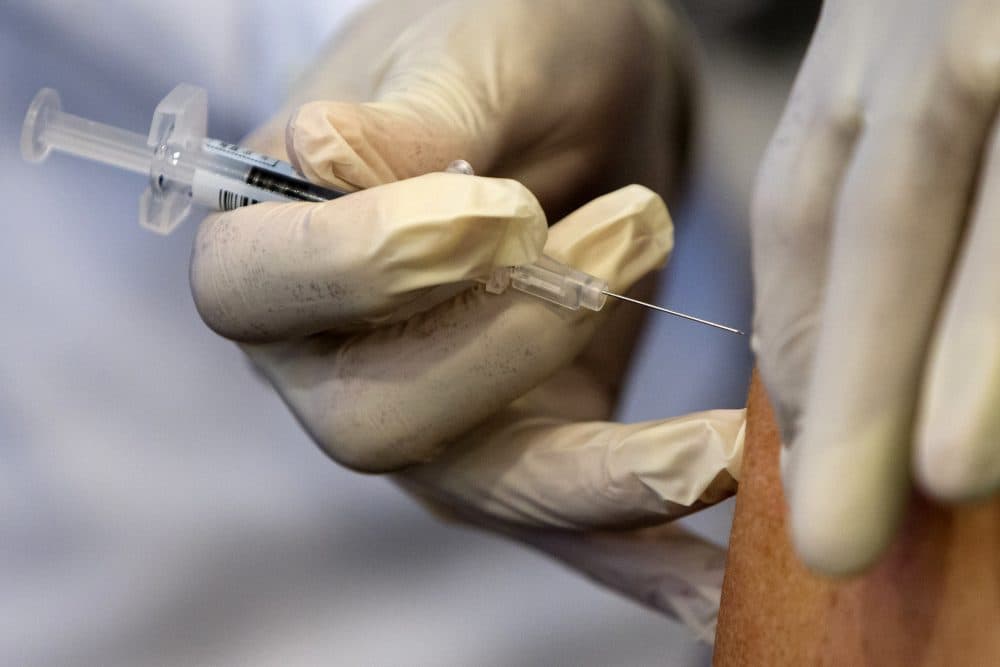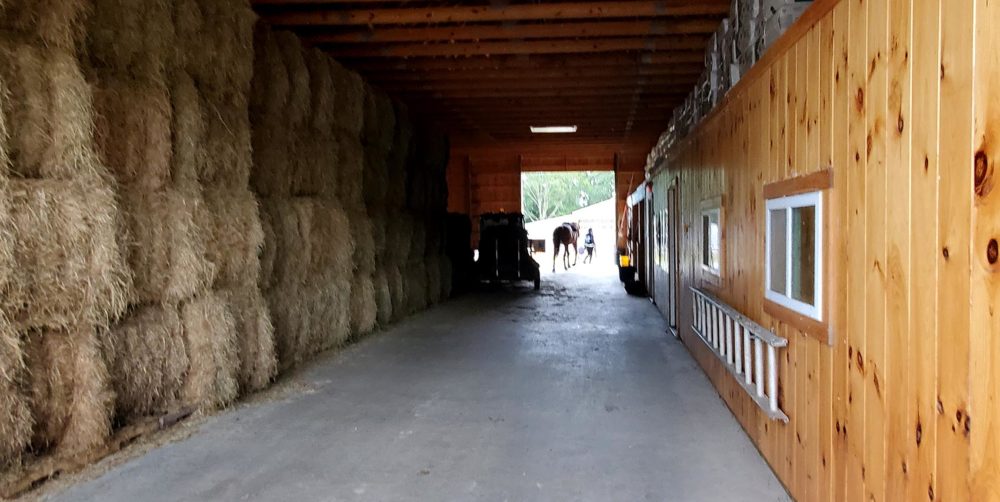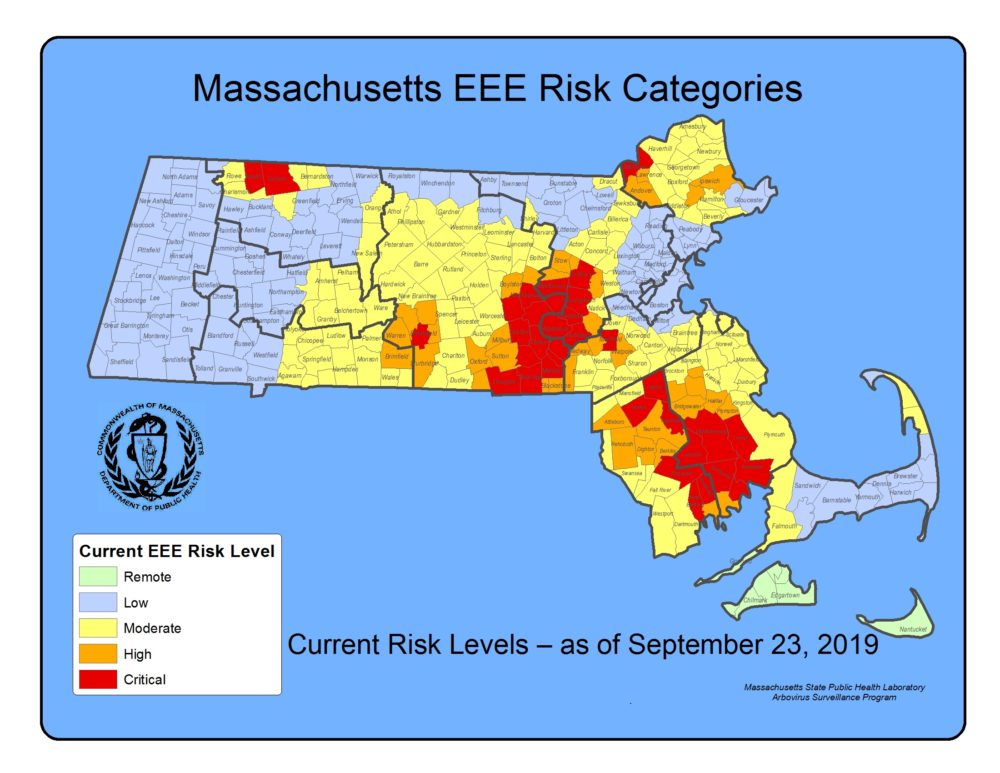Advertisement
There Is An EEE Vaccine For Humans. You Just Can't Get It
Resume
There’s no cure for Eastern equine encephalitis, or EEE, but there is a vaccine for the mosquito-borne illness. It’s just not commercially available.
The United States military developed it in the 1980s as part of a vaccine program to protect military personnel from dangerous pathogens, says Sam Telford, an epidemiologist at Tufts University.
“As a graduate student, I received that vaccine,” he says.
At the time, the military made it available to researchers who were studying the virus, but Telford says the Food and Drug Administration put a stop to that. “The FDA slapped the military for running essentially unregulated clinical trials,” he says.
Now, researchers must get the vaccine through an official clinical trial run by the United States Army Medical Research Institute of Infectious Diseases, or USAMRIID.
“Researchers at places like the Galveston National Laboratory and others must travel to USAMRIID, pay the $20,000 or whatever it is to enroll in the study, and travel back periodically to have physicals and blood samples and all of that done,” Telford says.

That’s impractical for most people, and there's another downside too. The effectiveness of the EEE vaccine doesn’t last very long, says Mark Fisher, an epidemiologist at the Centers for Disease Control and Prevention.
“The vaccine does work, but the protection is very short lived. People need to receive the vaccine multiple times over years in order to maintain protection,” he says.
It’s unlikely that the human vaccine will ever become widely available, public health experts say. Vaccines for human consumption have to go through rigorous trials to prove their safety, and the process may be too expensive for an illness as rare as EEE.
“Any company could not be in their right mind if they wanted to invest $150 [million] to $200 million to run through clinical trials and get FDA registration for the sale of a EEE vaccine,” Telford says. “There are just so few patients.”
This year has been one of the most active years for EEE in over half a century, but fewer than 30 people have contracted the virus in the United States so far. Ten of them have been in Massachusetts, and three of those patients died. By contrast, the CDC receives reports of roughly 30,000 new cases of Lyme disease every year.

“So EEE is not a disease for which development of a vaccine is a high priority,” Fisher says.
It is a lot easier to get an animal vaccine approved, however. There is a horse vaccine available for about $50, and many horse farmers, like Nancy Dubin of Holliston, give it to their animals every year. It’s not always effective though. Last month, one of Dubin’s horses got EEE even though he was vaccinated.
“Bruin was very young and did not have enough antibodies built up from the vaccine,” she says. “It was definitely a very sad day. After about three days, he was walking into walls and stuff. So, it was definitely affecting his brain.”
Dubin had to put Bruin down after that. The disease, though rare, has a high fatality rate. For horses, it’s about 90%, and roughly a third of humans who get the illness pass away, according to the CDC.
Tufts' Telford says the risk of the illness will persist until a hard frost kills off mosquitoes that can carry the virus.
“It’s so nice and so warm that there’s undoubtedly mosquitoes breeding mosquitoes,” he says. “And there’s plenty of potential for people getting infected by West Nile Virus or Eastern equine encephalitis probably for another three weeks.”
Until then, he says people living in elevated risk areas for EEE should always wear mosquito repellent when going outside, in the daytime and at night.
This segment aired on September 25, 2019.
